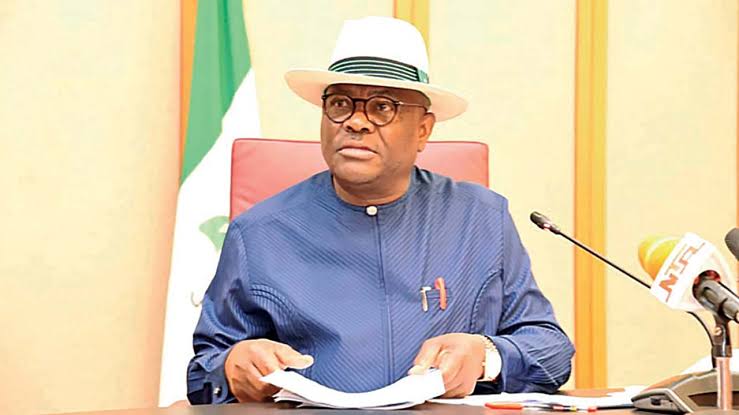Nyesom Wike, the Minister of the Federal Capital Territory (FCT), vehemently denies accusations of anti-party activities during the 2023 general elections, despite his open support for President Bola Tinubu of the All Progressives Congress (APC). Wike’s stance, which he reiterated during a live media parley, centers on the perceived injustice within his party, the People’s Democratic Party (PDP), regarding the zoning of the presidential candidacy. He argues that his support for Tinubu stemmed from the PDP’s disregard for the principle of fairness and equity, which, in his view, dictated that the presidency should have been zoned to the Southern region. Wike emphasizes that the party’s decision to field former Vice President Atiku Abubakar, a Northern candidate, despite holding the national chairmanship position, was a breach of an unwritten agreement and a major factor in his decision to withdraw support for Atiku.
Wike’s justification for supporting Tinubu hinges on the PDP’s internal dynamics and what he perceived as a betrayal of the principle of power rotation. He pointed out that he had openly declared his intention not to support Atiku’s candidacy based on the party’s disregard for equity and fairness. He questioned why he should have remained silent when the party’s leadership prioritized Atiku’s ambition over the agreed-upon zoning arrangement. For Wike, the PDP’s actions not only undermined the party’s cohesion but also disregarded the legitimate aspirations of the Southern region. He maintains that his support for Tinubu was a principled stance against the perceived injustice within his own party, rather than an act of disloyalty.
To further bolster his argument, Wike highlights his significant contributions to the PDP’s electoral success in Rivers State during the 2023 elections. He emphasizes that despite his personal stance on the presidential election, he ensured the PDP secured victories in the governorship, National Assembly, and other legislative seats in Rivers State. He contrasts his achievements with those of other PDP governors and party members, challenging them to demonstrate comparable success in their respective states. This, according to Wike, demonstrates his commitment to the party’s overall success, even while disagreeing with specific decisions of the leadership. He asserts that if he were truly engaged in anti-party activities, the PDP would not have achieved such resounding victory in Rivers State.
Wike also draws attention to the actions of other prominent PDP figures, such as Bode George, who openly supported Peter Obi of the Labour Party. He points out that while he disagreed with George’s support for Obi, believing Obi’s chances of winning were slim, he respected George’s right to choose. This comparison serves to underscore Wike’s argument that his own support for Tinubu was not unique within the party and that other members also exercised their freedom of choice without facing accusations of anti-party behavior. He frames his decision as a strategic political move, emphasizing the need for pragmatism over sentimentality in electoral politics.
Wike’s defense against accusations of anti-party conduct revolves around his interpretation of fairness, equity, and the power dynamics within the PDP. He argues that his decision to support Tinubu was not a betrayal of the party, but rather a response to the party’s own betrayal of its internal agreements and the principles of fairness. He portrays himself as a principled politician who stood up for what he believed in, even if it meant going against the party line. His significant contributions to the PDP’s electoral success in Rivers State, coupled with the actions of other party members supporting alternative candidates, further strengthens his claim that his actions were not motivated by disloyalty but by a commitment to justice and fairness.
In essence, Wike’s narrative reframes his support for Tinubu as a form of internal protest against the PDP’s perceived disregard for established norms and agreements. He positions himself as a champion of fairness and equity, arguing that his actions were not only justified but also necessary to address the internal contradictions within the party. By highlighting his electoral contributions and drawing comparisons with other party members who supported different candidates, Wike seeks to legitimize his decision and dispel the notion that he acted solely out of self-interest or disloyalty. He presents his actions as a calculated political move based on his analysis of the political landscape and the best interests of the Southern region.


